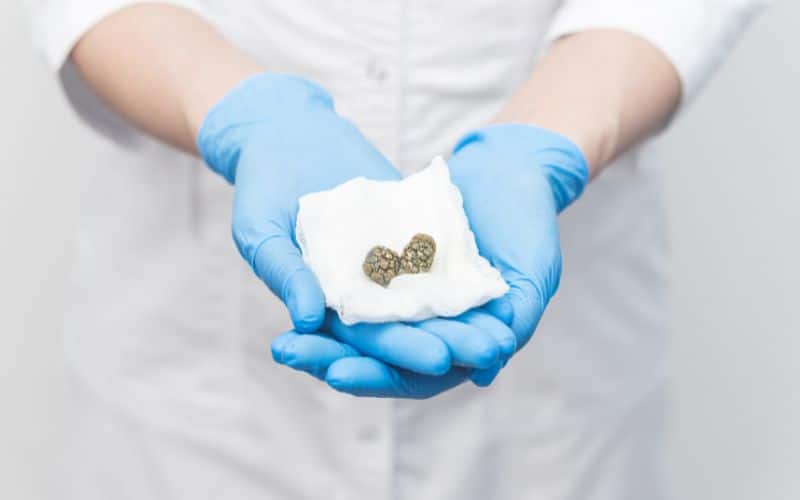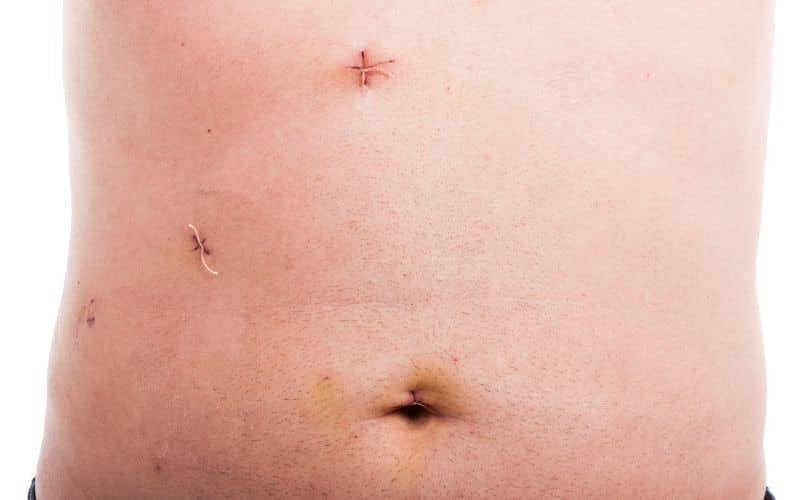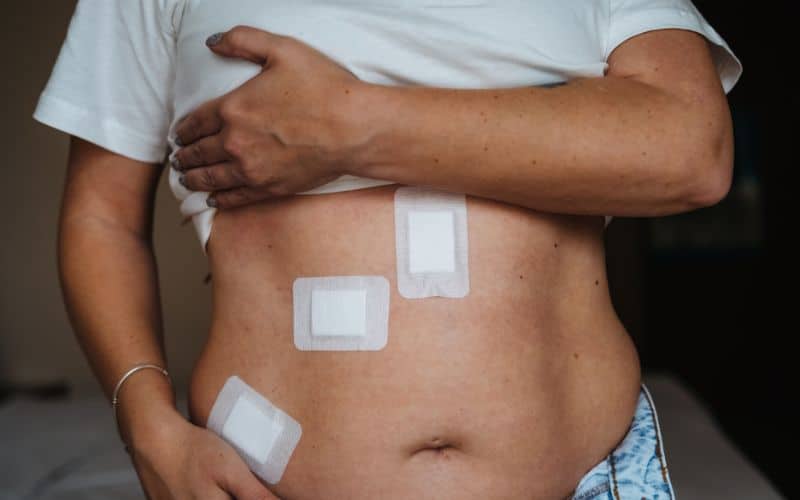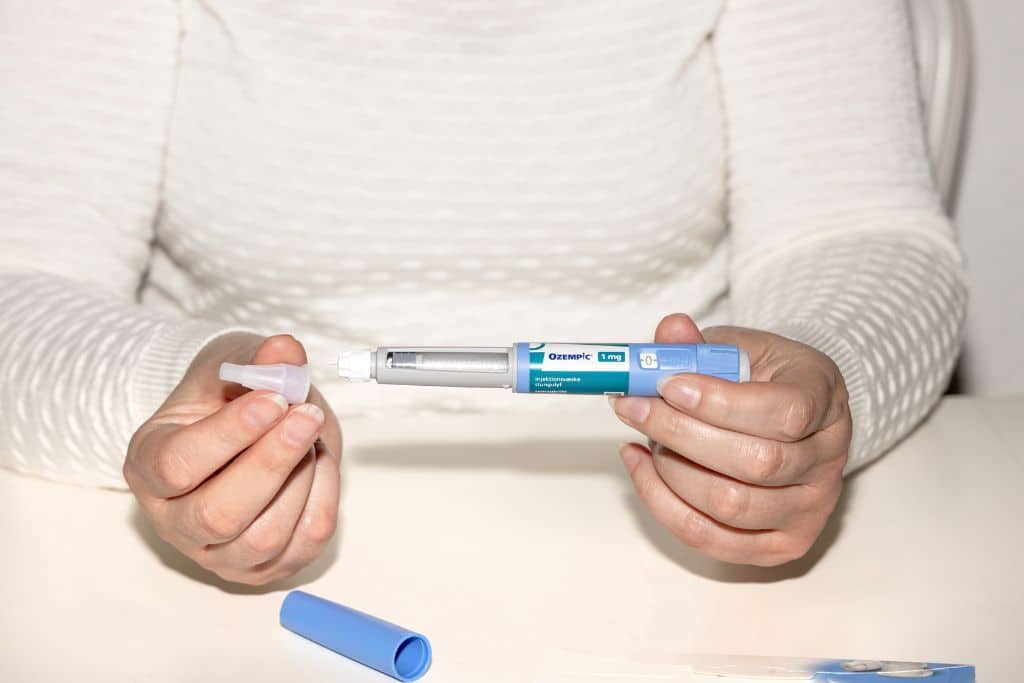Gallbladder removal is a common surgical procedure that affects millions of people worldwide. While the procedure itself is relatively safe, many patients experience side effects after the surgery, including weight loss or gain. In this article, we will explore the topic of weight loss or gain after gallbladder removal, including the causes, symptoms, and treatments.
One of the most common side effects of gallbladder removal is weight loss. This is often due to a decrease in appetite and the elimination of fatty foods from the diet. However, some patients may experience weight gain instead, which can be frustrating and difficult to manage. Understanding the causes of weight changes after gallbladder removal is essential for managing these symptoms and maintaining a healthy weight.
If you have recently undergone gallbladder removal surgery, it is essential to be aware of the potential side effects, including weight changes. While weight loss or gain is not uncommon after this procedure, it is essential to speak with your doctor if you experience any significant changes in your weight or overall health. With the right treatment and management, you can maintain a healthy weight and live a happy, healthy life after gallbladder removal.
Contents
Understanding Gallbladder Removal

Gallbladder removal, also known as cholecystectomy, is a surgical procedure that involves removing the gallbladder. The gallbladder is a small, pear-shaped organ located in the upper right part of the abdomen that helps store and release bile, a digestive fluid that helps break down fats.
The most common reason for gallbladder removal is gallstones, which are hard deposits that form in the gallbladder. Other reasons for gallbladder removal include inflammation of the gallbladder, gallbladder cancer, and biliary dyskinesia, a condition where the gallbladder does not empty properly.
Gallbladder removal can be done using laparoscopic or open surgery. Laparoscopic surgery involves making small incisions in the abdomen and using a camera and specialized instruments to remove the gallbladder. Open surgery involves making a larger incision in the abdomen to remove the gallbladder.
After gallbladder removal, some people may experience changes in their digestion and weight. This is because the gallbladder plays a role in the digestion of fats, and without it, the body may have a harder time digesting and absorbing fats. This can lead to diarrhea, bloating, and gas.
Weight changes after gallbladder removal can vary from person to person. Some people may experience weight loss, while others may experience weight gain. Factors that can influence weight changes after gallbladder removal include diet, exercise, age, and overall health.
It is important to follow a healthy diet and lifestyle after gallbladder removal to help manage any digestive and weight changes. A diet low in fat and high in fiber can help ease digestion and prevent weight gain. Consult with a healthcare provider or registered dietitian for personalized recommendations.
Immediate Effects on Weight
After gallbladder removal surgery, it is common for patients to experience some immediate changes in their weight. Some people may experience weight loss, while others may gain weight. However, it is important to note that these changes are not universal and can vary from person to person.
One reason for weight loss immediately following gallbladder removal is due to the possible adverse effects of surgery. For example, diarrhea is a common side effect that can lead to weight loss in the short term. Additionally, the elimination of fatty foods from the diet after surgery can also contribute to weight loss.
On the other hand, some people may experience weight gain after gallbladder removal. This can be due to a variety of factors, including changes in diet, decreased physical activity, and metabolic changes in the body. It is important to note that weight gain is not a universal side effect and may not occur in all patients.
It is also important to note that any weight changes immediately following gallbladder removal surgery may not be permanent. For many people, these changes are temporary and may resolve on their own over time. However, if you are concerned about your weight after gallbladder removal, it is important to speak with your doctor to determine the best course of action.
Long-Term Weight Changes

After gallbladder removal surgery, some people experience long-term weight changes that may be difficult to manage. In this section, we will discuss the potential weight gain and possible weight loss that can occur after gallbladder removal.
Potential Weight Gain
Gallbladder removal surgery can cause some people to gain weight in the long term. This is because the gallbladder is responsible for storing and releasing bile, which helps to break down and digest fats. Without a gallbladder, the body may have difficulty digesting fats, leading to weight gain.
Additionally, some people may turn to high-fat foods as a way to compensate for the loss of their gallbladder, which can contribute to weight gain. It is important to note that weight gain after gallbladder removal is not inevitable and can be managed with a healthy diet and regular exercise.
Possible Weight Loss
On the other hand, some people may experience weight loss after gallbladder removal. This may be due to the elimination of fatty foods from the diet, which can lead to a reduction in calorie intake. Additionally, some people may experience diarrhea after gallbladder removal, which can also contribute to weight loss.
However, it is important to note that weight loss after gallbladder removal is not guaranteed and may not be sustainable in the long term. It is important to maintain a healthy diet and exercise regularly to achieve and maintain a healthy weight.
In summary, weight changes after gallbladder removal can vary from person to person. Some people may experience weight gain, while others may experience weight loss. It is important to maintain a healthy diet and exercise regularly to manage weight changes after gallbladder removal.
Factors Influencing Weight Changes
After gallbladder removal surgery, weight changes are common. Some people experience weight loss, while others may gain weight. There are several factors that can influence these changes, including dietary adjustments, physical activity levels, and the body's metabolic response.
Dietary Adjustments
Dietary adjustments are a crucial factor in weight changes after gallbladder removal surgery. The gallbladder plays a vital role in the digestion and absorption of fat. When the gallbladder is removed, the body may have difficulty digesting and absorbing fats, which can lead to diarrhea, bloating, and other digestive issues.
To manage these symptoms, doctors often recommend a low-fat diet after gallbladder removal surgery. A low-fat diet typically includes foods that are low in saturated and trans fats, such as fruits, vegetables, lean proteins, and whole grains. Some people may need to avoid certain foods altogether, such as fried foods, fatty meats, and high-fat dairy products.
Physical Activity Levels
Physical activity levels can also influence weight changes after gallbladder removal surgery. Regular exercise can help boost metabolism, burn calories, and improve overall health. However, some people may experience difficulty with physical activity after surgery due to pain, fatigue, or other issues.
It's important to talk to your doctor about your physical activity level after gallbladder removal surgery. Your doctor can help you develop a safe and effective exercise plan based on your individual needs and abilities.
Body's Metabolic Response
The body's metabolic response is another factor that can influence weight changes after gallbladder removal surgery. The gallbladder plays a role in the regulation of bile production, which helps break down fats and absorb nutrients. After the gallbladder is removed, the body may have difficulty regulating bile production, which can affect metabolism and lead to weight changes.
The body's metabolic response can vary from person to person, and it's important to talk to your doctor about any concerns you may have. Your doctor can help you manage any symptoms and develop a plan to promote healthy weight management after surgery.
In conclusion, weight changes after gallbladder removal surgery are common and can be influenced by several factors, including dietary adjustments, physical activity levels, and the body's metabolic response. It's important to work with your doctor to develop a plan that promotes healthy weight management and addresses any symptoms or concerns you may have.
Managing Weight After Gallbladder Removal

Losing or gaining weight after gallbladder removal is a common concern for many patients. While it can be challenging, it is not impossible to manage your weight after the procedure. Here are some tips to help you maintain a healthy weight after gallbladder removal.
Healthy Eating Habits
Eating a healthy diet is essential for managing weight after gallbladder removal. It is recommended to eat small, frequent meals throughout the day rather than three large meals. This can help prevent overeating and aid in digestion.
It is also important to avoid fatty, greasy, or fried foods as they can be difficult to digest. Instead, focus on incorporating more fruits, vegetables, lean protein, and whole grains into your diet. These foods are easier to digest and can help you feel fuller for longer.
Additionally, staying hydrated by drinking plenty of water can help with digestion and prevent overeating. Avoid sugary drinks and alcohol as they can contribute to weight gain.
Regular Exercise
Regular exercise is an important part of weight management after gallbladder removal. The American Heart Association recommends getting 150 minutes of moderate-to-intense physical activity every week. Living an active lifestyle can help you burn calories and maintain a healthy weight.
There are many different types of exercises you can do, such as walking, swimming, or cycling. Find an activity that you enjoy and make it a part of your daily routine. You can also try strength training exercises to build muscle and increase your metabolism.
Medical Consultation
If you are struggling with weight management after gallbladder removal, it is important to consult with your doctor. They can provide guidance on healthy eating habits and exercise routines that are safe for you.
In some cases, weight gain after gallbladder removal may be due to underlying medical conditions such as hypothyroidism or insulin resistance. Your doctor can perform tests to determine if there is an underlying medical issue that needs to be addressed.
In conclusion, managing weight after gallbladder removal requires a combination of healthy eating habits, regular exercise, and medical consultation. By making small, sustainable changes to your lifestyle, you can maintain a healthy weight and improve your overall health and well-being.
Conclusion
In conclusion, weight loss or gain after gallbladder removal is a common concern for many patients. While some individuals may experience weight loss due to the elimination of fatty foods, others may gain weight due to changes in their diet and lifestyle. It is important to note that weight changes after gallbladder surgery can vary from person to person and may depend on several factors, including age, gender, and pre-existing medical conditions.
To manage weight after gallbladder removal, it is recommended to follow a low-fat diet and avoid consuming large amounts of fat, which may lead to digestive discomfort such as diarrhea, gas, and bloating. It is also important to maintain a healthy and balanced diet, including plenty of fruits, vegetables, and lean proteins.
Additionally, regular exercise can help promote weight loss and improve overall health. Consult with your healthcare provider before starting any exercise program or making significant changes to your diet.
If you experience long-term symptoms such as diarrhea, fatty food intolerance, gas, heartburn, nausea, vomiting, jaundice, or abdominal pain after gallbladder surgery, you may havepost-cholecystectomy syndrome (PCS). It is important to seek medical attention if you experience any of these symptoms.
Overall, weight changes after gallbladder removal can be managed with a balanced diet, regular exercise, and proper medical care. By following these recommendations, individuals can maintain a healthy weight and improve their overall well-being.






